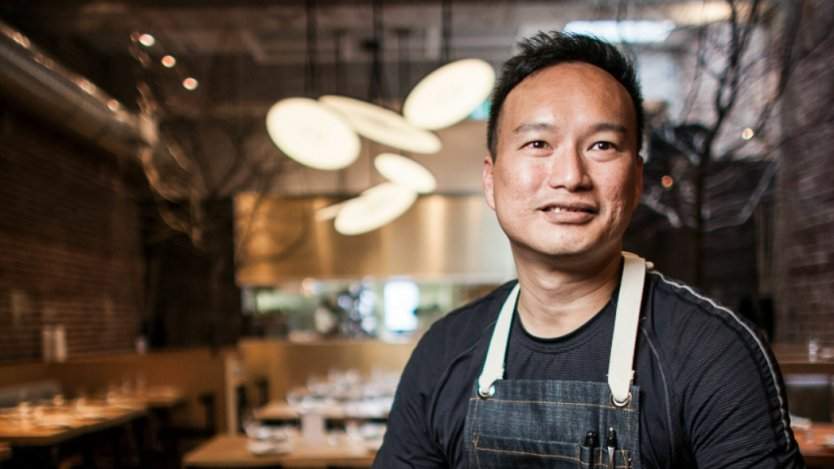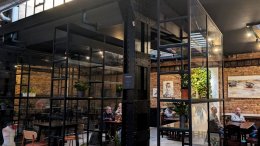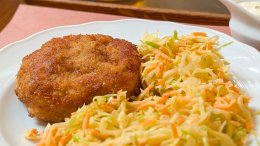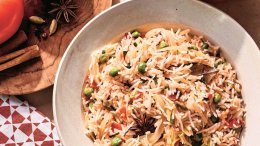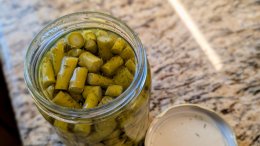Contemporary Asian cuisine has become quite a trend in North America, especially in Canada. It's tough to figure out which chefs are genuine in their approach and which ones are just flash-in-the-pan-ing. Chef Keev Mah has deep roots in Chinese culture and is no stranger to the Vancouver food scene, both modern Asian and fine dining alike, working at spots like Pidgen and Bambudda.
Today, the chef is working hard at Sai Woo, a restaurant in Chinatown that was recently long-listed for enRoute’s Canada’s Best New Restaurants list. Mah clearly loves what he does and is determined to put his best foot forward when creating dishes that reflect cultural diversity and international flavours. Here, Mah talks about cooking since 1992, the evolution of Chinese food and more.
How did you first get into the food world?
Well, I went to culinary school back in 1992. I cooked on and off after that, but there was always a lot of pressure [from my family] to go to a proper school and not be a cook: one of those Asian things. My parents really didn’t want me to cook. So, I did go back to school. I pursued some other things along the way and was successful in different careers, but eventually the food and my love of cooking just drew me back. So, about five years ago I finally decided that this was absolutely what I want to do.
If you were in and out of the kitchen, how did you keep up with what was current?
The few years that I was in and out of the industry, I was always still dining out. Eating everything, still involved in food. It was always my first love.
What was a really hot and trendy restaurant in Vancouver back in the 1990s that isn't here anymore? What's changed in the way restaurants work since then?
La Gavroche on Alberni Street. At the time, that was one of the top three French restaurants, along with Le Crocodile and one other one. A lot has changed. I mean, Le Crocodile is still around, but a lot of restaurants have changed since then!
What we used to cook, how we used to cook: I have seen everything change. We’ve evolved now. The systems and the business end is so dominant.
What do you think about the "rise" of modern Asian cuisine in Canada?
It’s always been my goal and my belief. I try to propagate Chinese food from an immigrant’s perspective. I’m Chinese, both of my grandparents are from China, but when I went there [for the first time], it was a big culture shock for me. Everyone thought I was an outcast and I was honestly really hurt by it. I tried to figure out true Chinese food, so I ate through a lot of places. The people who left China to go to Hong Kong or Taiwan or Jamaica, or wherever brought with them the recipes, so they could continue that craft. So, it wasn’t until recently, I’d say mid-1980s when Chinese food started to develop again.
There’s a region in China where they actually use a lot of milk and people don’t usually associate China as a place that would use a lot of that. That’s where the inspiration for the stir-fried milk on our menu comes from. It’s a Chinese dish!
When I think of the definition of Chinese now, I think more global. A lot of Chinese food is found in Thai food, Malaysian too, so much Chinese influence in there. All of the Vietnamese restaurants in North America have a lot of Chinese influence.
Do you think in a big city like Vancouver, a marketing or PR person is essential for a restaurant?
I think so, yes. You need to if you are a new restaurant, unless you’ve already built your reputation or brand. So, if someone like Vikram Vij opens a restaurant, it’s easier for him, I think. Even Angus Lee (Maenam), he has a brand. For us, we don’t have that yet, so it is a necessity.
Sai Woo. What's in a name?
In Chinese, it means “the West Lake” and there’s actually a Chinese restaurant named Western Lake Chinese Seafood, so people do get confused about that sometimes. The name of the restaurant also goes back to 1915 from the building we're in now, there was a spot right here called Sai Woo Chop Suey.
Vancouver has different places for younger people to get their culinary training, so what happens to them when they're done school?
Isn’t it the same with writing, though? I mean, everyone thinks they can write in theory, but it is actually pretty hard to write, isn't it? Cooking can be viewed the same way. Everybody thinks they can cook. It’s not hard to cook, but either you cook good, you cook well or you cook great and there’s such a difference. And if they don't have [the latter], then they get out of the industry.
Do you think being part of the long list of nominees for enRoute's Canada's Best New Restaurants has made the restaurant noticeably busier?
I’m not sure, but I think so? I don’t ask, I just cook! Ha, ha! I’ve done some TV appearances too and people will sometimes mention that, but as far as enRoute, I haven’t personally heard someone say that.
Is why you cook now the same reason you started cooking in the first place?
When I was younger, I was way more idealistic. You don’t realize the amount of sacrifices that you will have to make. I want to fulfill my legacy, which is cooking Chinese-inspired food. So, that’s why I do it now. Back then, it was more like, "Yeah! I love to cook!"
I loved to eat, I had a good palate, so I thought it would be a great job, but I didn’t about everything else that being a chef involved. So, I’d say no, probably not. It has changed.

